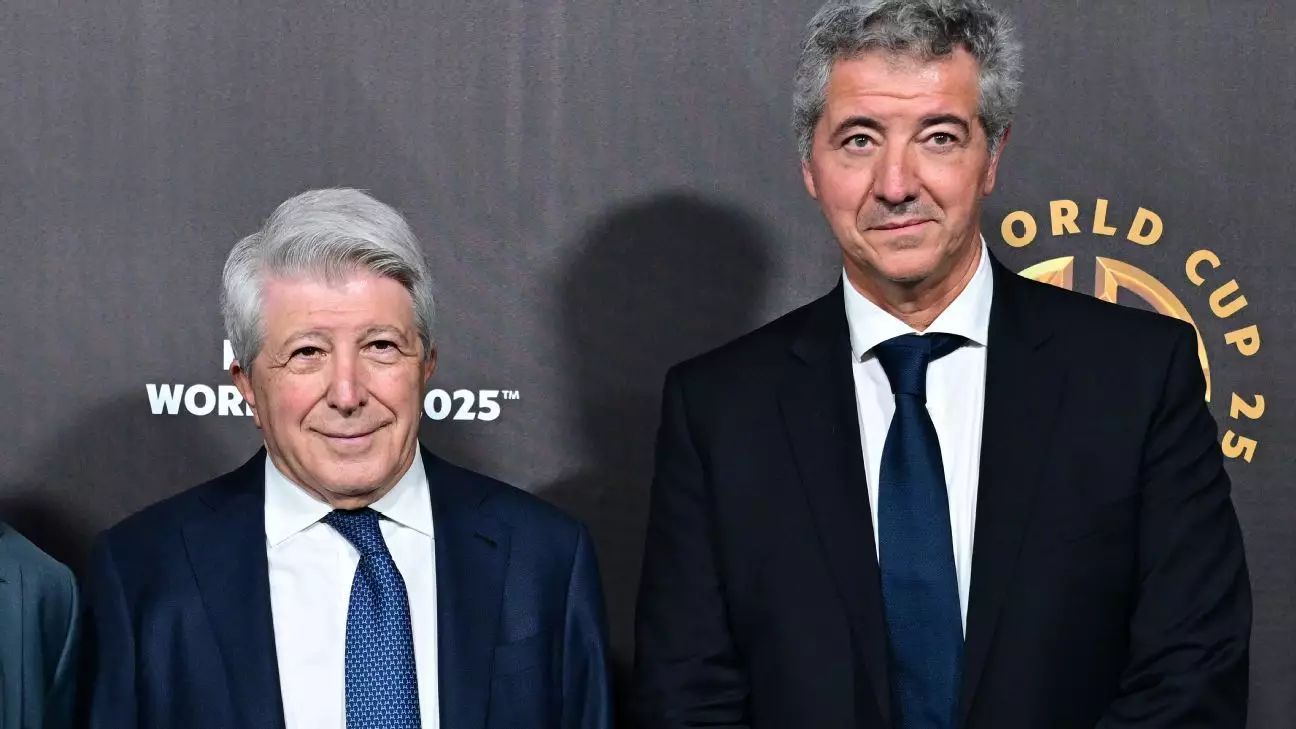The world of football is no stranger to controversies, and one of the most polarized topics in recent years has been the European Super League. The proposal has sparked debates among clubs, fans, and football governing bodies. A key player in this narrative is Atlético Madrid’s chief executive, Miguel Ángel Gil Marin. Recent comments from Gil Marin have highlighted the internal conflicts within this contentious project, offering a fresh perspective on the ongoing debate surrounding the Super League and its implications for the future of European football.
In an interview with Atlético Madrid’s in-house media, Gil Marin expressed his discontent with the direction the Super League has taken. He characterized the latest iteration of this concept, now referred to as the “Unify League,” as a misguided attempt focused solely on validating a single club’s agenda rather than fostering a competitive balance across the sport. Initially, the Super League proposed a closed league format intended to protect select clubs, which Gil Marin argues jeopardizes the integrity of the European football pyramid.
This statement reflects a significant shift in sentiment among the founding members. Atlético Madrid was an early supporter of the project, but their subsequent withdrawal was a bold move that underscored their commitment to a more inclusive approach to football. According to Gil Marin, this shift demonstrates a commitment not only to maintaining competitive integrity but also to embracing constructive change within the existing frameworks laid out by UEFA and FIFA.
Gil Marin further supported his position by highlighting the responsive changes UEFA has introduced in recent years, such as the expansion of European Competitions—the Champions League, Europa League, and Conference League. He articulated that these reforms offer opportunities for clubs from various leagues to participate, thus increasing market competitiveness. In contrast to the Super League’s proposals, which didn’t facilitate broader participation, UEFA’s adaptations helped to financially empower clubs while maintaining the essence of competitive football.
Moreover, Gil Marin pointed out the risk that the Super League’s approach could deter sponsors and broadcasters, ultimately stalling growth for competitions currently in play. The economic vitality of football heavily depends on sponsorship and media rights deals, and any uncertainty could jeopardize that stability, particularly for smaller clubs that rely on these revenue streams.
Alongside his criticism of the Super League, Gil Marin also emphasized the need to address player welfare in light of packed schedules. He proposed the idea of limiting the number of games players participate in across club and international fixtures—an increasingly relevant issue amid the demanding calendars players face. Gil Marin’s advocacy for player protection indicates his realization of the physical toll these extended seasons inflict on athletes, thereby showcasing a more human-centric aspect of sports governance.
The proposal for game limit regulations serves as a reminder that while financial considerations are paramount in football discussions, the health and well-being of players should remain central to the dialogue. Such responsible management would not only enhance player longevity but also enrich the overall spectacle of the sport for fans and clubs alike.
As Atlético Madrid stands atop the La Liga table going into 2025, their sustained success is rooted in strategic investments and a commitment to recalibrating their squad effectively. With recent signings such as Julián Álvarez and Alexander Sørloth, Gil Marin acknowledges the need for change in the squad to ensure continued competitiveness. This reflects a broader approach that contrasts the exclusivity proposed by the Super League and instead champions collaborative growth within the football ecosystem.
Such moves demonstrate a perspective focused on both sporting achievement and financial prudence. The club’s ability to blend these elements signifies an understanding that the future of football will depend on adaptability and cohesive governance rather than closed-off leagues that threaten the very fabric of the sport.
Ultimately, the ongoing discourse surrounding the Super League presents an opportunity for reflection within the football community. As leaders like Gil Marin advocate for change from within the established structures, their voices contribute to a broader dialogue about inclusivity, player welfare, and competitive integrity. The path forward for European football will require a collective effort, navigating through the complexities of tradition and modernity to ensure a vibrant, equitable future for the sport.
